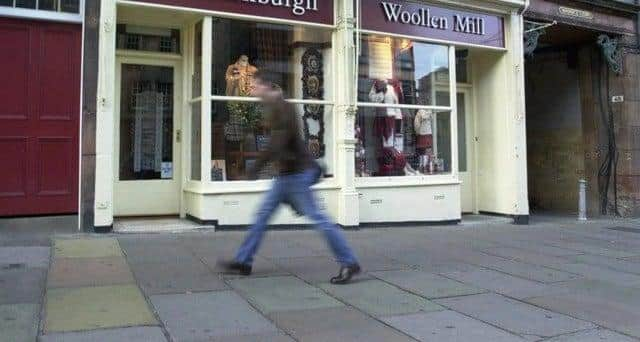Edinburgh Woollen Mill: pandemic impact on tourism cannot be underestimated


Many people stopped travelling, wary about stepping on a plane. The American market was, understandably, particularly affected – and in turn, so were Scotland’s incoming tourist numbers.
In the St Andrews branch of the Edinburgh Woollen Mill, the impact was clear. The summer after September 11, the shop was deathly quiet. So much so, that as a part-time student worker, I was instructed by the manager to fold and unfold cashmere cardigans for entire shifts in a bid to “look busy”.
Advertisement
Hide AdAdvertisement
Hide AdThe chain’s eponymous brand relied on tourist trade - especially Scots-Americans keen to get their hands on a piece of “their tartan” or a mid-priced kilt to take home with them - to prop up their finances. The tourists were so few that I can still, almost 20 years later, remember some of them personally – the family from the mid West who were on the sterotypical American tour of Scotland – “it’s Thursday, it must be St Andrews” – and the feisty older couple from New York who weren’t going to let terrorists spoil their plans to play on the Old Course.
In normal times, the store would have welcomed hundreds of these kinds of tourists through its doors, but this year, an unprecedented lull in the global tourism boom, they were a rare sight. And in between cardigan-folding, the fact things were so quiet meant I had time to chat to the customers we did have.
This year, due to another “unprecedented” event – the Coronavirus crisis – tourism is also down. Travellers from many countries are required to isolate for two weeks on arrival in the UK, making a typical holiday unfeasible, while others would be forced to isolate on return to their home nations due to rising levels of Covid in Britain.
Edinburgh Woollen Mill (EWM) – which also owns clothing brands Peacocks and Jaeger – has talked about the impact of the pandemic on its business, due to its key older demographic shying away from the high street. Earlier this week, it announced it would appoint administrators in an attempt to save the business. The move puts 21,000 jobs at risk at its 1,100 stores UK-wide.
However, there is no doubt that the drop in tourists will also have had an impact. Although it is Carlisle-based, its goods are heavily Scottish: tartan scarves and chunky Highlands-inspired knits and a range of garments made from Harris Tweed.
"Like every retailer, we have found the past seven months extremely difficult," said EWM chief executive Steve Simpson.
EWM, of course, has other problems, in addition to the pandemic.
Simpson cited "a series of false rumours about our payments and trading which have impacted our credit insurance" as having an impact on its business. EWM has been accused by suppliers in Bangladesh of not paying for goods, which the company denies.
Advertisement
Hide AdAdvertisement
Hide AdHowever, taking its fashion brands aside, until the tourists return to the UK in their droves, Edinburgh Woollen Mill’s core business cannot return to full strength.